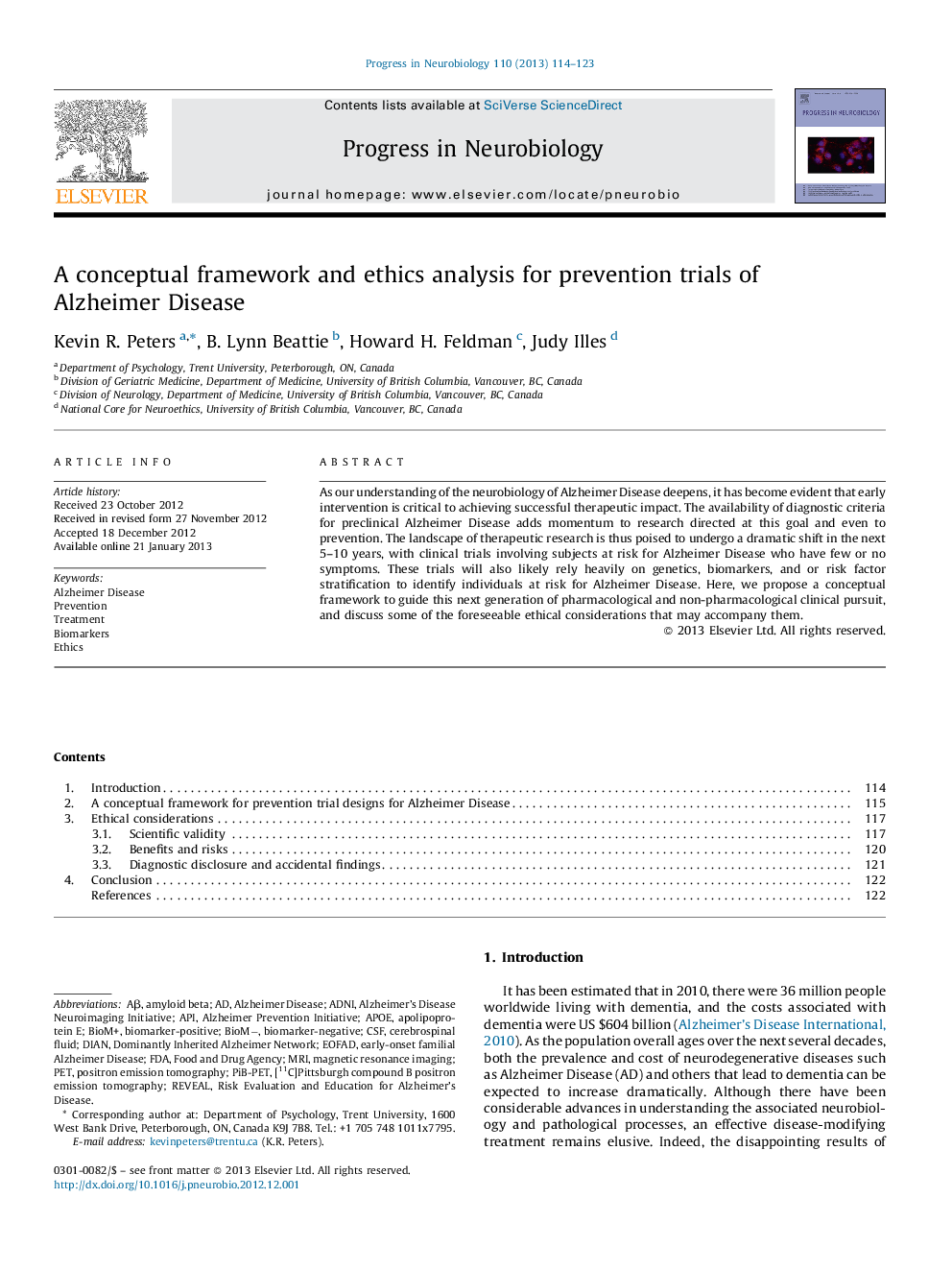| Article ID | Journal | Published Year | Pages | File Type |
|---|---|---|---|---|
| 4353333 | Progress in Neurobiology | 2013 | 10 Pages |
As our understanding of the neurobiology of Alzheimer Disease deepens, it has become evident that early intervention is critical to achieving successful therapeutic impact. The availability of diagnostic criteria for preclinical Alzheimer Disease adds momentum to research directed at this goal and even to prevention. The landscape of therapeutic research is thus poised to undergo a dramatic shift in the next 5–10 years, with clinical trials involving subjects at risk for Alzheimer Disease who have few or no symptoms. These trials will also likely rely heavily on genetics, biomarkers, and or risk factor stratification to identify individuals at risk for Alzheimer Disease. Here, we propose a conceptual framework to guide this next generation of pharmacological and non-pharmacological clinical pursuit, and discuss some of the foreseeable ethical considerations that may accompany them.
► The landscape of Alzheimer Disease clinical trials is changing dramatically. ► A conceptual framework for Alzheimer Disease prevention trials is proposed. ► Key ethical issues facing Alzheimer Disease prevention trials are discussed.
